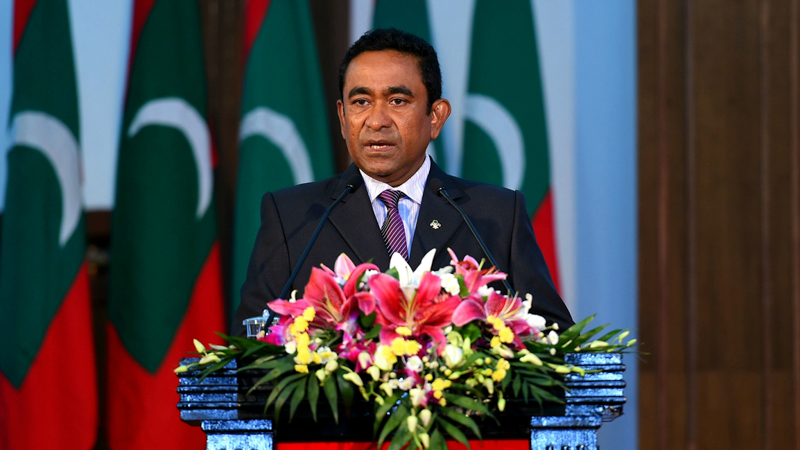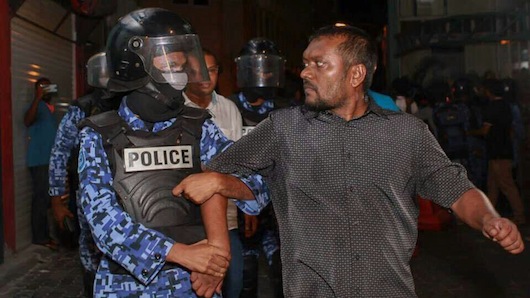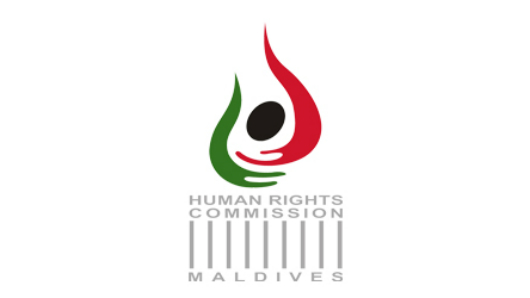Former President Mohamed Nasheed has decided to wait on appealing a 13-year jail term until the Criminal Court provides both a full transcript of court proceedings and sufficient time to prepare, despite a looming appeal deadline of Thursday (March 26).
The Criminal Court has so far only provided a judgment summary, and not a full case report as requested by lawyers.
The court today blamed the delay in issuing the full report on Nasheed and his lawyers’ alleged refusal to sign statements they had made during court hearings.
Another unnamed individual had also failed to sign off their statements, the Criminal Court said, adding that it could not release full proceedings without the required signatures.
“We hereby publicly announce that if there is a delay in releasing the detailed case report, it is not because this court has failed in its duty, but because Mohamed Nasheed and his lawyers have not cooperated with the court,” the court said in a statement.
But Nasheed’s lawyers said the former president had refused to sign the statements only because they contained serious errors, which they say the Criminal Court has so far refused to correct.
“For example, the statement of witness testimony from the Chief of Defence Force contains statements he did not make in court. Further, the Criminal Court omitted President Nasheed’s request for medical attention at the first hearing on February 23,” lawyer Hisaan Hussein told Minivan News.
She also noted the statements were not a transcript of all that was said at court, but a summary, which had resulted in omissions and paraphrasing of the actual comments.
In a statement issued today, Nasheed’s lawyers said the Criminal Court has been “repeatedly obstructing President Nasheed’s constitutional right to appeal and imposing administrative restrictions by failing to provide the court report to date.”
“The full case report would include the testimonies of prosecutor’s witness which was recounted by the Judge wrongly, submissions made regarding documentary evidence, closing statement submitted by the prosecution, detailed findings of the judges with reference to the evidences and conflicting rulings made on many aspects of procedural law which was contended during the trial.
“Additionally, since the first and last three hearings were conducted in the absence of legal representation, the arguments and submissions made by the prosecution regarding witness testimonies, documentary evidence and closing statement will be known only after we receive the full case report,” lawyers said.
A High Court appeal could be filed solely based on the judgment summary, but Nasheed’s lawyers said they would then only have the opportunity to argue within the parameters raised in the initial submission.
As issues contended in subsequent hearings would only be considered at the discretion of judges, it is imperative that Nasheed receives the case report to prepare his appeal, lawyers said.
The Maldivian Democratic Party (MDP) Spokesperson Hamid Abdul Ghafoor claimed the Criminal Court is “using every procedural trick in the book to deny President Nasheed’s right to appeal.”
“The Criminal Court conducted a disgraceful and blatantly politicized trial, and now they are busy trying to hamper the appeal,” he added.
Nasheed was convicted of terrorism on March 13 over the January 2012 military detention of Judge Abdulla in a trial many international and domestic observers called a “travesty of justice.”
The UN High Commissioner for Human Rights Zeid Ra’ad Al Hussein and the UN Special Rapporteur on Independence of Lawyers and Judges Gabriela Knaul last week urged the Maldives to guarantee that Nasheed’s appeal would respect the most stringent fair trial standards and observe due process, including adequate time for preparation.
The surprise trial began one day after Nasheed was arrested on February 22, and was completed after 11 hearings in 19 days.
“It is hard to see how such hasty proceedings, which are far from the norm in the Maldives, can be compatible with the authorities’ obligations under international law to conduct a fair trial,” Zeid said.
















